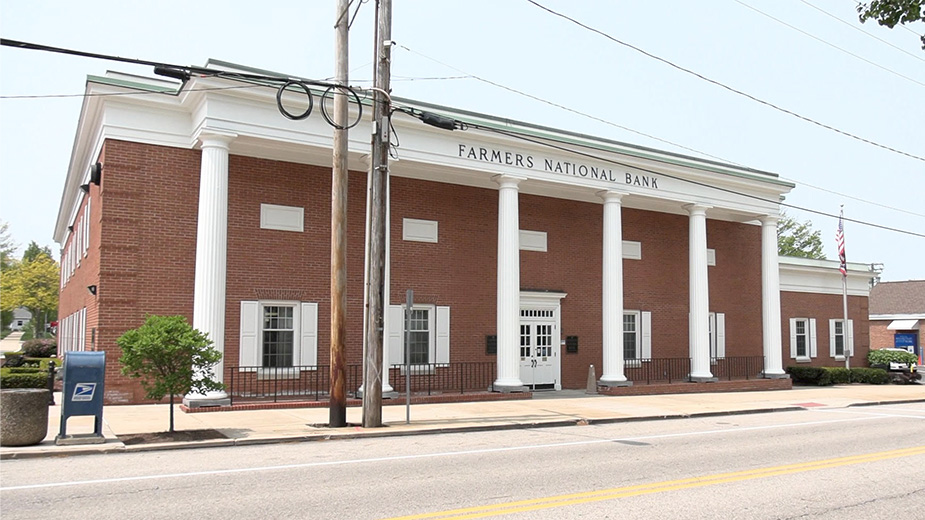How Banks, Law Firms, Schools Recruit Professionals
Second of two parts
YOUNGSTOWN, Ohio — Admission to the professions of accounting, architecture, banking, law, medicine and teaching requires intelligence, aptitude, mastering a rigorous curriculum in college and/or graduate school and a dogged determination.
Sometimes those attributes aren’t enough because the supply of qualified candidates exceeds demand – architecture and law, to name two – while it’s a sellers’ market in others, such as accounting, teaching and medicine.
In the first part of this series on recruiting, we looked at how doctors, nurses, accountants and architects are recruited. This issue we turn to bankers, lawyers and teachers.
Bankers
Admission to PNC University is by invitation only and the director of college recruitment for PNC Bank, Erin Baker, and her staff of 10 visit college campuses across the United States and monitor websites such as Monster.com to meet and interview candidates.
She also oversees the bank’s college internship program to identify future PNC bankers. An internship lasts 10 weeks, Baker says.
PNC University, which has a campus in downtown Youngstown on the second floor of City Centre One, is the institution recent college graduates attend to learn how to be the frontline and support staff the bank needs.
PNC University has 10 training programs that run anywhere from 12 to 36 months.
While PNC is interested in any college senior who has displayed academic excellence and been a campus leader, Baker and her staff focus on those with majors in accounting, finance and computer science, she says. They learn who belongs to the student business organizations and honoraries, keeping tabs on leaders who show promise.
“There’s amazing talent at every school,” Baker says, “especially with Youngstown State University.” PNC also has “relationships with Grove City and Thiel” colleges, she says.
Many PNC employees “have longstanding relationships with [college] faculties,” PNC’s director of campus recruiting says. “They will tell them, ‘Here are my five best students. You should consider them.’ ”
The “most savvy students,” Baker says, “will attend every event,” such as a job or career fair, and be active in the campus student finance or accounting club sponsored by a member of the faculty.
On their resumes, PNC is looking for college students who demonstrate “academic success and balance multiple priorities,” such as holding a part-time job, being active in a student organization and volunteering in a community activity, Baker says. Successful completion of an internship is a plus.
A 4.0 GPA “is good,” she says, but PNC is looking for a “banking athlete,” that is, a well-rounded good student whose talents are social as well as academic.
Those invited to a first interview will spend 30 minutes with a PNC banker where they expand upon what they wrote on their resumes.
Nearly everyone has “a level of anxiety,” Baker says, and the interviewer does his best to put the student at ease.
Seniors whose interviews go well are invited to a second and those who audition best are extended job offers within two months of their first interview.
About half of those asked to a first interview “send an email thank-you note,” Baker says. No longer common are the handwritten follow-up letters that thank PNC for showing interest. Whether someone writes an email “says a lot about the person,” Baker says.
Those asked to work for PNC Bank tend to respond quickly, Baker says, usually within two weeks.
PNC looks for experienced bankers employed elsewhere, says its recruiting director, Vice President Amanda Snow, who oversees a staff of 55. Recruiting those who have compiled a record of success at another bank and might be persuaded to join PNC requires a degree of subtlety.
“We’re always looking for great talent,” Snow says, in people from all walks of life and all backgrounds who have proven themselves. That includes finance, computer science, sales, marketing and administration. Cyber protection has grown increasingly important, she notes.
The banking community is relatively small, Snow says, and PNC bankers are friends with and know their counterparts at other financial institutions. They know their strengths and who would fit in at PNC and adhere to its values.
It could be someone working at a smaller bank who’s looking to work for a larger bank, or someone looking to apply his talents in a field outside banking and finance. It could be someone in a position that lacks the flexibility PNC can provide, Snow says.
Sometimes impeding the recruitment of attractive candidates are non-compete clauses in the employment contracts they’ve signed with their employers, Snow says.
Lawyers
Turnover at law firms in the Mahoning Valley is minimal and most who leave do so because of retirement or because they were elected to full-time political office.
“There’s a surplus of lawyers,” says Elizabeth H. Farbman, an attorney with Roth Blair Roberts Strasfeld & Lodge LPA, Youngstown. The firm has 12 full-time lawyers and three of counsel, says managing partner James E. “Ted” Roberts.
Its recruiting efforts are minimal. “We’ve tried to stay lean with our staff,” Roberts says. Law students make cold calls once or twice a year about internships, the lawyer says, but are limited in what they can do because they have yet to pass the bar.
So law firms are in a buyers’ market. After earning their law degrees and passing the state bar exam, new lawyers have other options to put their education and talents to use or enter a related field where a law degree is a plus but not required, such as trust officer in a bank.
If they don’t join a firm, those with a license can hang out their own shingle, work in a public defender’s office or clerk for a supreme court justice, to name three of the not-so-lucrative venues. A more remunerative route is to practice corporate law, in effect join (or be) the in-house law firm of a large company.
So law firms can wait for lawyers to approach them and have their pick of the most-qualified. And when they do, it’s likely to be a lawyer with a proven record, such as Farbman, who was a litigator for a firm in Washington, D.C., before returning here 10 years ago.
Farbman returned, she says, because “the cost of living is lower,” and “I wanted to give my children what I had [growing up].”
“It’s family mostly,” Roberts adds about why lawyers who start out elsewhere return. “And they’re interested in a long-term relationship” that the larger firms here offer.
“Our three most recent hires,” Roberts says, “were practicing elsewhere [Philadelphia, Pittsburgh and Dayton] and wanted to come back. … They found us as much as we found them”
Those who aspire to work for a larger firm in the Mahoning Valley “must be versatile,” the managing partner says,” able to handle more than just family law, just trusts and estates, just labor law or just contracts.
Because the supply of lawyers exceeds demand, here and elsewhere, Farbman won’t discourage college students interested in law as a career, but she does encourage them to learn the economics of the profession, to at least ask a lawyer for the opportunity to shadow.
Teachers
The need for teachers, especially those who teach mathematics, science and special education has rarely been greater, Tyrone Olverson and Joe Nohra say.
Olverson is the chief academic officer for Youngstown City Schools, Nohra was superintendent of Struthers schools at the time he was interviewed. Today he works for the Youngstown City Schools.
Youngstown is starting to use social media to recruit teachers, Olverson says, along with the more traditional job fairs and visits to college campuses such as Youngstown State and Kent State universities and the University of Akron.
The majority of those who teach in Youngstown schools come from those three universities, the chief academic officer says, and he wants to recruit seniors at the University of Cincinnati, Miami, Ohio, Ohio State and Bowling Green State universities as well.
Those outside northeastern Ohio know little, if anything, about Youngstown, including where it is, Olverson has found, making it harder to interest education majors to come here.
“We’ve got to get the word out,” he says, “about the opportunities here and dispel the myths about Youngstown.” Youngstown offers a low cost of living and a vibrant cultural life, Olverson says.
He himself came to Youngstown last summer to serve city schools CEO Krish Mohip and says he’s pleased at what he’s found.
When Olverson visits colleges, he tries to “recruit pairs – husbands and wives, college roommates,” he says. The best candidate is someone who wants to teach “because a teacher touched them.”
Candidates are taken to visit a principal or teacher when they express serious interest.
“It’s not about money,” Olverson says about those who want to enter the profession, although compensation has improved. Youngstown offers $31,715 to start with a baccalaureate to a cap of $70,661 for a teacher with 27 years’ experience and holds a doctorate.
Those licensed to teach math, special education or science qualify for incentive pay.
Where once it was expected that teachers would supplement their salaries as coaches or advisers to academic or services clubs, “There is no pressure to be an adviser,” Olverson says, “and most coaches are outsiders, not teachers.”
Also making teaching more attractive is the support beginning teachers are given, “more support from assistant principals, a social worker in each building this year and counselors to support students and staff,” he says. “We must be there to support them.”
The chief academic officer follows up on those who express interest on the school system’s website – “You can apply on our website” – and “we return phone calls,” he assures a reporter.
“Struthers is a destination district,” Nohra says of his school system. “We see dozens of applications,” which makes his school board “ecstatic.”
When Struthers does have an opening, Nohra can expect a slew of applicants, he says, and the principals interview the five to 10 whose resumes look the best.
“We’ve retained 97%, 98% [of our faculty] over the last five years,” the superintendent says. Those who leave either retire or have a spouse whose job requires relocation.
The two to four applicants who interview best then meet Nohra and the principal in a second interview. The best candidate can expect a job offer within five days to a week.
Most of his faculty are graduates of Youngstown State and Kent State universities and Westminster College, all of which “are doing a great job. We don’t have to do much recruiting outside the area,” Nohra says, and the board gives preference to graduates of Struthers High School who want to teach in the system where they were educated. “A lot of our teachers come out of Struthers,” he says.
Almost all candidates submit their resumes via email, Nohra says, although “We still get some paper resumes.” When that happens, his secretary calls the candidates and directs him to “resend it through digital.”
As with Youngstown schools, those licensed to teach math and science are in greatest demand as are those who can teach a foreign language.
Administrators are in even greater demand.
“There’s a shortage of people who want to go into administration,” Assistant Superintendent Pete Pirone says. He’s not sure why teachers have become less willing to become administrators.
“The profession has gotten tough in the last few years,” Nohra notes. “We ask a lot.”
Besides raising standards to become a teacher – a teaching license has replaced the certificate – those who stand in classrooms are often expected to be social workers as well as educators – and continuing education is required, not an option.
“Teachers more than ever are counselors,” Nohra says, “and substitute parents. Teachers are dealing with what goes on in the home.”
Despite the expanded roles expected of teachers, “Morale is high,” Nohra says. The mentoring program is one factor and Struthers’ embrace of technology is another.
The higher standards required to teach has weeded out those not that interested in teaching or who saw it as a fallback.
“Now we are getting folk, more than ever, who want to be teachers,” Nohra says.
First part of series:
Recruiting Professionals Often Is a Long Courtship
Copyright 2024 The Business Journal, Youngstown, Ohio.



